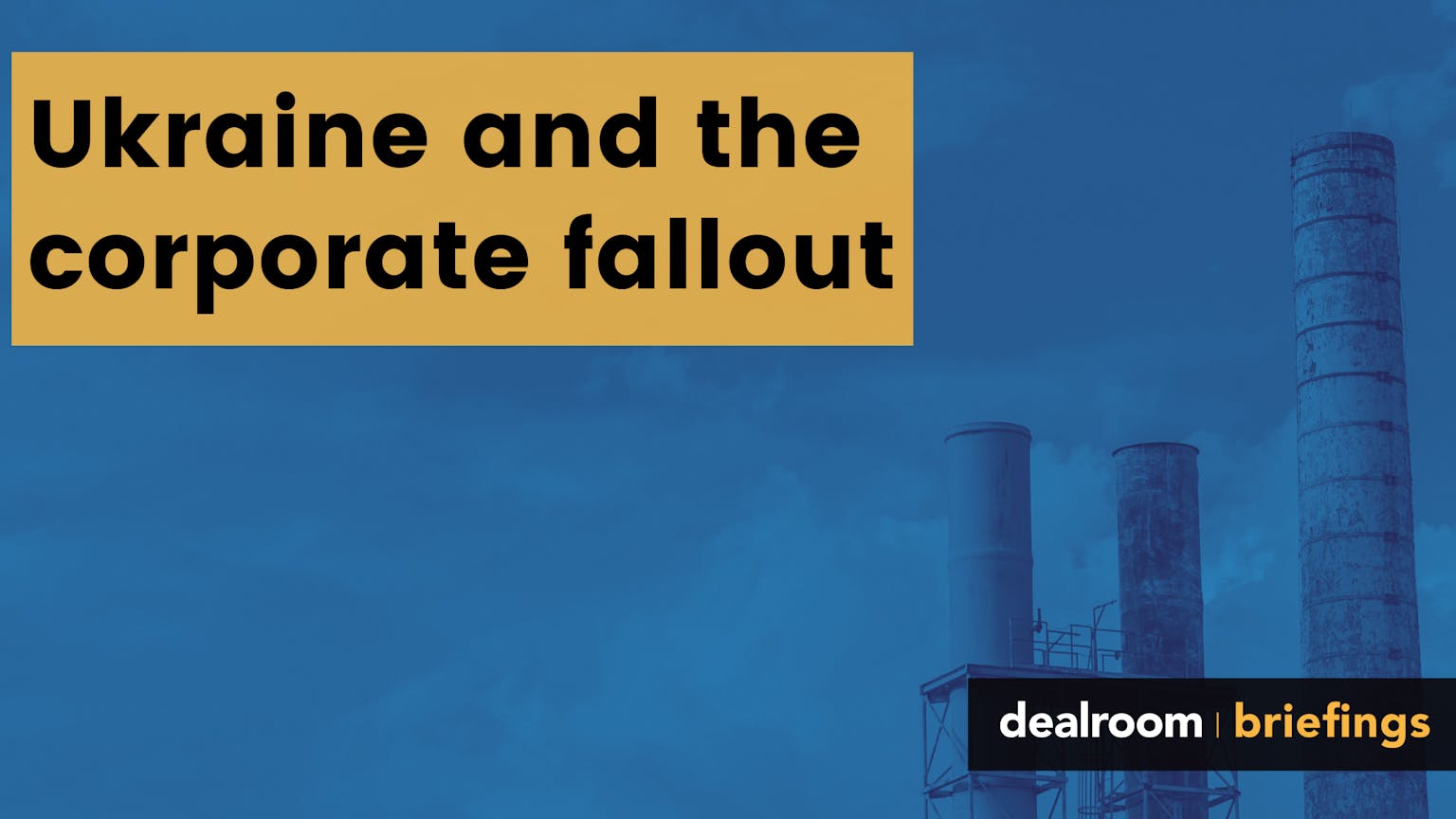The invasion of Ukraine and the corporate fallout

Russia’s invasion of Ukraine has triggered an international and humanitarian crisis. While governments and civilians around the world rush to send aid and support to Eastern Europe, the knock-on effects of the war on industry are already becoming apparent. Markets reeled in the run-up to and initiation of the invasion, as coalitions of global governments unleashed almost unprecedented cascading economic sanctions. Industries from finance and retail, to food, energy and even healthcare, are still unpacking the full measure of the implications, and how to rapidly adapt in a changing geopolitical landscape.
#TechforUkraine is looking for startups and tech companies to provide tech support to Ukraine in areas such as cybersecurity, resource distribution, safe messaging, embedded payments, and data-driven decision making and making donations easier.
Europe’s natural gas addiction
For the past three decades, Russia has supplied nearly 40% of the natural gas used in Europe and 25% of all the oil used in the world. With pre-invasion gas prices in Europe already at an all-time high, and Brent crude oil sailing past $100 last week, the discussion about energy independence in Europe has reignited.
Read more about how Europe and the world at large is rethinking dependency on fossil fuels, and the renewable future alternatives, in our latest Impact briefing.
SWIFT, sanctions, and financial offensive
Launched in 1977 by a coalition of banks, SWIFT is the main secure messaging system used to make rapid and secure cross-border payments. Restricting Russia’s SWIFT access has been seen as a last resort as economic sanctions are concerned. With the US and EU ban now partially applied with some of the main Russian banks being covered, along with a swathe of asset freezes, Russia and others may look to SWIFT and value-routing alternatives.
More on the implications for finance, and the potential use of crypto, in our Fintech briefing.
Innovating global supply chains
Flight bans, shipping restrictions and economic sanctions. The Russian invasion of Ukraine will have deep knock-on effects for supply chains and the global flow of goods. An industry which was already reeling from two pandemic year, is facing some of its greatest compounding challenges yet.
Agility, in times of uncertainty, becomes business critical. And solutions for supply chain disruptions could potentially be found in tech-enabled marketplaces, where a focus is on offering greater flexibility and ability to diversify connections with suppliers, sellers, and freight services to reduce procurement and sales cycles.
Additionally, as marketplaces try to capture complete value chains and offer more supportive services in lending and insurance they provide more room for adaptation and flexibility to companies dealing with distress from supply chain disruptions.
More in our Marketplaces briefing.
Sowing the seeds for food security
Ukraine, known as “the breadbasket of Europe”, is the world’s largest producer of sunflower seeds. It also ranks among the top 10 producers of corn, barley, rapeseed, wheat and soybeans. 25% of the world’s “black soil”, ideal for growing crops like wheat, cotton, oilseeds, but also cereals, fruit and vegetables, is in Ukraine, and agriculture accounts for 9.3% of the country’s GDP.
The Ukraine invasion has prompted new concerns and discussion around food security, and the potential of innovation in global food production. Read more in this week’s Foodtech briefing.
Cyberwarfare and the healthcare frontlines
Russia’s invasion of Ukraine has made the healthcare and medtech industry more susceptible to cyberattacks. Cyberattacks from Russian-sponsored hackers are looking to target (mainly) the US and NATO members’ critical infrastructure entities, including those in the public and private health sector. These include distributed denial-of-service (DDoS), website defacements and the use of ransomware or other destructive malware.
Mike Rushanan, director of medical security at Harbor Labs, a medical device security company, believes that the Russian state-sponsored actors are certainly capable of reproducing a similar cyberattack that disrupted UK’s NHS services in 2017, which hospitals could be negatively affected, potentially putting patients at risk.
Read more on how cyber defence and healthcare in our latest Health briefing.
Discover all the Dealroom briefings, and subscribe for regular weekly updates direct to your inbox, where we cover how startups and innovation are shaping the future of our societies and economies.